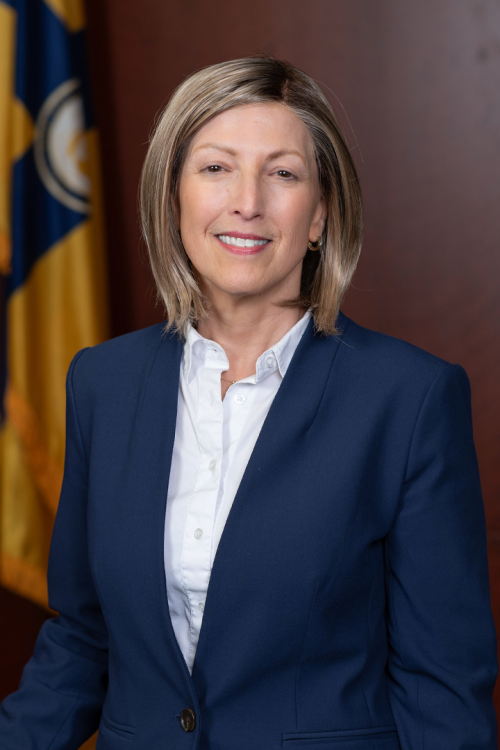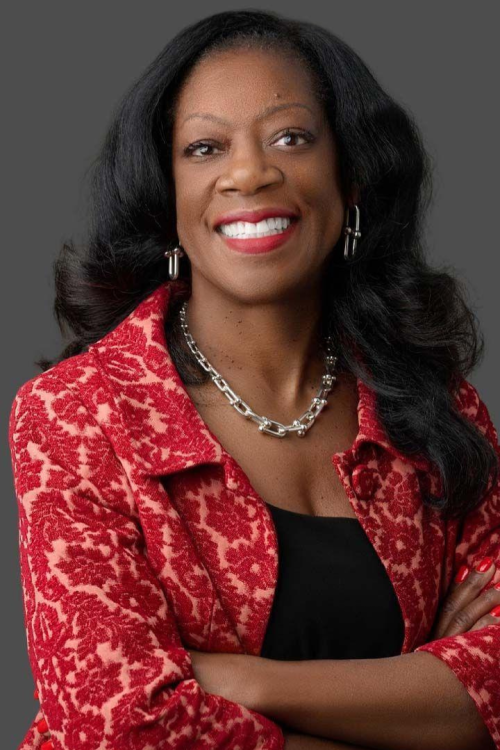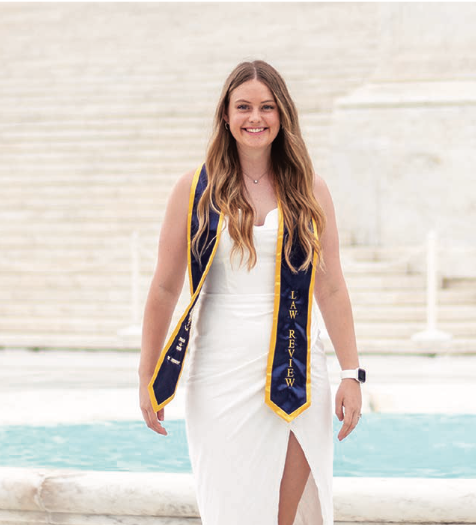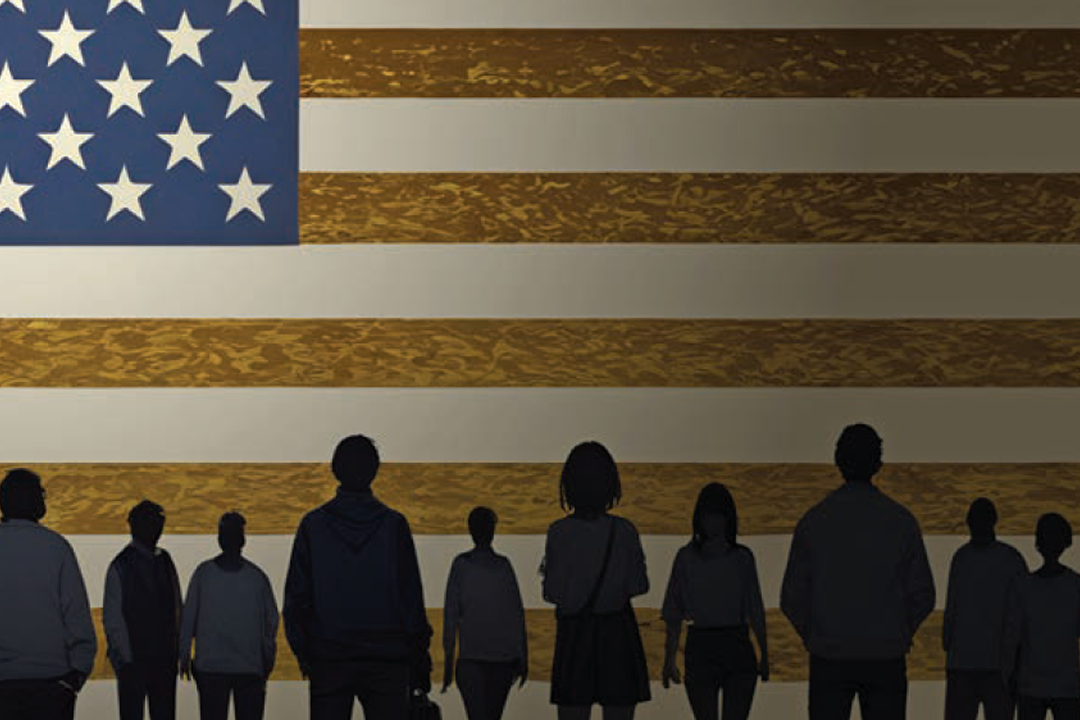By Mary A. Dempsey
Scott Hepler, JD ’23, applied to GW Law because he wanted a career in public service law. The school’s location was a big draw, close to federal agencies. But Hepler said GW offered other benefits: faculty with connections to government, an outstanding government contracts program, knowledgeable career counselors, and a culture that values public service.
As a 1L, he landed an internship with the National Science Foundation’s Office of Inspector General. He followed that with an internship with the Office of Inspector General at the U.S. Agency for International Development.
"I got a GAO job—like a summer associateship—in between my second and third years. From that, I was hired back when I finished law school,” said Hepler, who now provides legal support to GAO’s Contracting and National Security Acquisitions audit team.
Nearly 17 percent of Hepler’s Class of 2023 took positions with government agencies, continuing GW Law’s reputation as one of the top feeder schools for the government workforce. But the school isn’t satisfied with that distinction. It has ambitions to stretch that pipeline even wider.
"It’s no surprise that we, by order of magnitude, outperform most law schools in the United States in placing students in government service. We attract the kind of students who want to have a positive impact on the world,” said Dean Dayna Bowen Matthew. "We have a tremendous history of educating people who serve in the military, including judge advocate generals. We have a history of people who are not only trained in the doctrine and theory of criminal law, but who also go on to litigate as state and federal prosecutors or public defenders. We are the strongest school in the nation at training people who will serve to transform government and protect the democratic experiment that is the United States of America.”
The GW Law Career Development Office (CDO) has added to its staff and kicked off an accelerated effort to broaden the pool of talented students and alumni who pursue government service through internships and permanent employment. The drive includes the launch of an annual career fair focused on public sector and public interest law, stepped-up career coaching, and more comprehensive engagement by faculty and alumni with experience in the government.
The strategy will be strengthened by GW Law Link, a professional social networking and mentoring platform for students and alumni.
"Government employment, particularly with the federal government, has historically been very strong for our grads,” said Suzanne Hard, associate dean for professional development and career strategy. "Our government employment numbers are among the best in the country for law schools, and we seek to build on that success.”

“Our government employment numbers are among the best in the country for law schools, and we seek to build on that success.”
Suzanne Hard
Associate Dean for Professional Development and Career Strategy.
She noted that GW Law easily outpaces the American Bar Association’s finding that 12 percent of law school graduates go into government work. Many of the school’s adjunct faculty members work in federal agencies, and students benefit from their experience and connections.
Among members of the Class of 2023 who went into government law, some 63 percent landed federal positions. A fifth went to work for state agencies. Local government positions accounted for another 11 percent, and 3 percent took international government jobs. The Career Development Office is mobilizing to raise those numbers in all categories and expand GW Law’s strength as a feeder school for federal employment, in part because of its location in the nation’s capital and students’ ability to complete multiple federal internships and academic year externships during their law school experience.
"Dean Hard takes a holistic approach to career advising and has encouraged the Career Development Office to coordinate efforts across the law school, including faculty and student organizations,” said Erin Kelly, who is assistant director of career counseling and part of the Public Interest and Public Service Law Center team. Kelly joined GW Law in January 2024 after practicing employment and administrative law with the Merit Systems Protection Board, Department of Commerce, and Social Security Administration.
The law school’s reputation as a channel to government employment is already bolstered by the school’s subject matter concentrations, including the preeminent Government Procurement Law program and the National Security, Cybersecurity, and Foreign Relations Law Program headed by Associate Dean Lisa Schenck, a retired colonel and Army judge advocate who has held several high-profile appointments, including chief judge of the U.S. Court of Military Commission Review.
Hepler said the Government Procurement Law program, which is more than 60 years old, provided him the knowledge and skills needed to succeed at the GAO.
"The program was super well known and it was something I got involved with. The classes were helpful and the professors were very knowledgeable and had connections to the government,” he said. "At the GAO I’m working on government contracting issues. It’s interesting legal work and it’s a great agency to work for. I really believe in our mission of overseeing federal spending,” added Hepler, who emphasized that he’s expressing his private opinion, not that of the GAO.
GW Law also has a long and successful track record with students selected for the Judge Advocate General’s (JAG) Corps of the Army, Air Force, Navy, Marine Corps, and Coast Guard. The CDO has relationships with field screening officers and facilitates on-campus interviews. This summer, Kelly attended a two-day career services course at Maxwell Air Force Base to gain a comprehensive understanding of the opportunities available for GW Law students with the Air Force, both as JAG officers and as civilian attorneys with the recently launched Palace Acquire Program.
For students interested in criminal defense across the United States, the Career Development Office has connected with Professor Lula Hagos, director of the school’s Criminal Defense and Justice Clinic, to enable student engagement with interested employers and increase student awareness of public defender offices in active hiring cycles.
The new Public Interest and Public Sector (PIPS) Career Fair, which was launched this fall, is expected to attract as many as 40 employers from the federal government, DC government, and legal services organizations. Federal agencies taking part include the Internal Revenue Service, U.S. Department of Justice, and U.S. Department of Labor. Noting that the Career Development Office is also committed to supporting students who want to pursue non-government public interest legal careers, Kelly said DC-area legal services providers representing a broad range of practice areas will also be participating, in addition to organizations such as Immigrant Justice Corps, which hires a fellowships class of 3Ls each year.
"The PIPS Career Fair will help fill the lack of in-person networking opportunities that have frustrated both law students and employers,” said Kelly, explaining that many of the major public interest career fairs and other legal recruiting initiatives have remained virtual since the pandemic.
A goal of the Career Development Office, Kelly said, is to increase students’ awareness of opportunities at government agencies and other public interest employers. Although the fair is designed as an informational and networking opportunity, not a formal recruiting event, many of the employers involved have hired GW Law students and graduates. The PIPS Career Fair will benefit students of all class years, from 2Ls and 3Ls actively applying for internships and post-graduate positions, to incoming 1Ls, who will be able to learn about opportunities. Kelly said a majority of 1L students do government and nonprofit internships their first summer, regardless of whether they ultimately pursue private practice or public interest careers.
The career fair complements the office’s many other outreach efforts. Career counselors educate students on the unique requirements of job applications for government attorney positions, such as demonstrating a commitment to government service in resumés and cover letters and the types of writing samples that federal hiring managers value. Recent in-person events at GW Law have included an information session with the Department of Justice’s Office of Attorney Recruitment and Management and a panel discussion on Honors Programs.
The Honors Program is the nation’s principal recruitment program for entry-level federal attorneys. The GW Law panel featured alumni from the Internal Revenue Service and senior attorneys and officials from the Consumer Financial Protection Bureau and the Department of Commerce. Over the summer, the Career Development Office sent periodic updates to rising 2L and 3L students interested in government practice, highlighting agencies hiring for positions both in the DC area and around the country.
Henry Castro, JD ’23, an honors attorney in the Office of the Chief Counsel at the IRS, took part in the Honors Program’s panel discussion.
"My plan in going to law school was to do nonprofit or public interest work. I knew I didn’t want to go to a firm,” Castro said. “I wasn’t planning to go into tax law, but Professor [Jeremy] Bearer- Friend got me interested in tax and tax policy.”
Castro said at least half his professors had practitioner experience in public interest law. He described them as "great resources” in understanding what government law entailed. In the summer after his 1L year, he interned for the State Attorney’s Office in Montgomery County, Md. That was followed by a clerkship with Superior Court of the District of Columbia Associate Judge Fern Flanagan Saddler. When he applied for his current position at the IRS, he found that he had an advantage as a GW Law student.
“We are the strongest school in the nation at training people who will serve to transform government and protect the democratic experiment that is the United States of America.”
Dayna Bowen Matthew
Dean and Harold H. Greene
Professor of Law

"GW was sort of special because it’s one of the schools where the IRS does pre-interviews, before the honors interview,” Castro said. “You can ask questions about what the chief counsel’s office does. I’m grateful that GW had that.”
At the IRS, Castro is involved in procedural law, including on cases in partnership with the Department of Justice. He said he also contributes to the lawmaking process through work on briefs in response to inquiries from Congress.
"Being in the national office, I get to work on novel issues, issues that have little to no case law,” he said. "I love it. And all the attorneys I work with are really great. Being a first-year attorney is nerve-wracking, but they’re patient and understanding and helpful in guiding you.”
The Career Development Office currently works one-on-one to connect students with alumni inside these agencies, but a faster and more efficient networking tool is in the works. GW Law Link, a new mentorship-focused web platform, debuted in a soft launch in August. It is open to all GW Law students and alumni—not just those interested in public service—but the CDO underscored its ability to connect students with government lawyers who graduated from GW Law.
"It’s a platform that can be used for student-to-alumni, alumni-to-alumni, and student-to-student connections. It’s a really great hub for connection,” said Leah Hollar, the program associate for professional development and mentorship at GW Law. "Alumni would be able to share their expertise with students, and students could seek out advice through resumé reviews and informational interviews. The school, too, can use it to reach out to alumni to take part in events.
"Hopefully,” she added, “it will also be great for our eventual alumni mentorship program.”
Hollar said the closed network has a function that enables students and alumni to directly upload their LinkedIn profiles to the site. And GW Law Link users can break into subgroups on the platform. "It could connect evening students and alumni to one another, for example, or it could connect evening students to alumni employers at small and medium firms,” Hollar explained.
GW Law’s career services also address employment in federal agencies’ regional offices, and the school’s geographic location gives students a leg up when seeking public service employment in Maryland, Virginia, and the District of Columbia. Dean Matthew also noted that the school’s faculty and alumni include attorneys working in international law.
"Our international law scholars are fabulous and productive scholars. Courts cite them, tribunals cite them,” the dean said. "But they are also founders of nonprofit organizations that litigate and advocate to protect humanitarian rights around the globe.”
But federal government work is the goal of many students who enroll at GW—and the law school carries that torch high.
"I think the role of higher education is to educate a citizenry that can defend and preserve democracy. There’s no law school in the nation better situated to fulfill this goal than GW—for its location, its size, and the way our students and faculty combine intellectual curiosity, academic excellence, and pragmatic impact,” said Matthew. “We are a community of deeply talented scholars who are experts at translating our intellectual expertise to actionable change. We don’t just talk and think about the law, we use the law to help solve society’s greatest challenges. And that’s what’s great about GW Law.”
Opening Doors to Coveted Judicial Clerkships

Kendall Archer, JD ’24, was one of the first members of the Class of 2024 to report a clerkship—a pinnacle experience in building a legal career. She will clerk next year with Chief Judge Robert J. Shelby on the District Court of Utah, the same judge she interned for as a 1L. In 2027, she has lined up a federal clerkship in Denver with Judge Veronica S. Rossman of the U.S. Court of Appeals for the Tenth Circuit.
Fifty-three other members of her class also have secured clerkships, 18 in federal courts and 35 in state courts.
“Clerkships are unique professional experiences that JDs carry with them throughout their legal careers. Every clerkship, whether it be with a federal appellate court, a state trial court, a bankruptcy court, or an agency is a worthwhile opportunity,” said Suzanne Hard, GW Law’s new associate dean for professional development and career strategies. “A clerkship strengthens a grad’s experience and puts them in a better position for everything they do next, including applying for other roles. As a clerk, you are going to be around people who think seriously about legal writing and analysis. You will see how conflicts are resolved through the courts and what judges value.
“I want every one of our students to get the information they need to make their own decision about pursuing a clerkship and to be a competitive candidate. I want them to count themselves in,” she added.
Archer did not come from a family of lawyers, and she said she didn’t quite understand the role a clerkship plays in a legal career until she spoke with GW Law career counselors. William Cranch Research Professor of Law Bradford Clark then guided her in creating a job plan, and Distinguished Professorial Lecturer in Government Contracts Law, Practice, and Policy Jessica Tillipman served as her mentor.
Archer, who was slated to join Williams & Connolly LLP in Washington, DC, at the end of September after passing the bar exam, found the internship with Shelby through GW Law’s job platform. The internship led to the offer of a clerkship.
“I think the clerkships offer an unparalleled opportunity to access the judicial court system. You get involved in the decision process—that’s going to strengthen my skills as an attorney. I want to be the best writer I can be, and that’s what clerks are doing day in and day out,” said Archer, who served as editor-in-chief of the George Washington Law Review. “To have the opportunity to hone those skills is great.”
About 10 percent of GW Law’s graduating class members each year land federal and state clerkships. Hard wants to see the numbers rise.
Hard’s push for clerkships dovetails with Dean Dayna Bowen Matthew’s strategic plan for the school. Hard believes that increasing clerkship-related programming and support in the Career Development Office will enable more students to apply for and secure these roles.
“Not every student who joins us understands what a clerkship is or their value professionally. As a result, they may not pursue these opportunities as they are not aware of them, or they may not see themselves as qualified. We are working to ensure that all students understand the broad range of these opportunities and how to apply for them,” Hard said.
She sees clerkships as both a growth area for post-grad employment and an additional avenue through which GW Law can bring greater diversity to the legal profession. Hard previously worked at the University of Connecticut School of Law, where she directed the Center for Career Development. At GW Law, she is part of the dean’s advisory team.
Clerkships are highly competitive, and many law students assume they are out of reach. The American Bar Association said only 3.4 percent of the country’s more than 35,000 JD graduates in 2023 found work in federal chambers. But Teresa Kona, GW Law’s judicial clerkship coordinator, said there are misconceptions about who secures clerkships.
“I think the clerkships offer an unparalleled opportunity to access the judicial court system. You get involved in the decision process—that’s going to strengthen my skills as an attorney. ”
Kendall Archer
JD '24
“We think it is important to reach students in the 1L year to let them know that grades are not a definitive factor. Many of our students have secured clerkships even though they were not at the top of their class,” Kona said. “We keep an eye out for students who bring unique qualifiers—they have prior work experience, they are active in clinics.”
GW Law is adding to the robust list of services and support it deploys to guide students to both internships and clerkships. In April, Kona helped launch clerkship drop-in hours for students who have questions about the process. This fall, the Career Development Office will hold a Judicial Opportunities program to introduce students to judicial internships and clerkships. Plans are also in the works for a nuts-and-bolts program, primarily targeting 2Ls and 3Ls, to assist students in their application process. In January, a resumé collection will enable 1Ls to be considered for summer judicial internships with several federal chambers.
Hard described the internships as transformative experiences for students.
“Each year our students serve as interns or externs, through the Field Placement Program, with dozens of members of the federal judiciary. These opportunities are life-changing and career building,” Hard said. “I have seen nervous first-year students return after a summer interning in chambers with new skills, a new confidence, and a feeling of belonging in this profession. Although they are generally unpaid, these opportunities are worthwhile for all of our students, and it is my hope that we can provide additional guidance and funding so that we see an increase in students applying for and securing these roles.”
The school is also deepening the most important resource it makes available every February: its judicial clerkship handbook.
The handbook walks students and alumni through the clerkship process, detailing benchmarks, listing judges with GW affiliation, and identifying GW alumni who have clerked over the last 10 years so that students may network with them.
“Not only does the Career Development Office provide students with a GW Law-specific handbook, we supplement it with extensive programming and one-on-one counseling,” Kona said. This programming includes alumni panel discussions on federal clerkships and events that cater to evening students, for whom clerkships may be more complicated. Three part-time students in the Class of 2024 obtained clerkships.
The Faculty Clerkship Committee is another resource. Committee members write the majority of the letters of recommendation submitted on behalf of GW Law students. They also let the clerkship team know about chambers with opportunities and upcoming deadlines, information that is added to a twice-a-month newsletter for students.
“We’ve even had clerkship committee members walk actual applications to judges, just to make sure students are able to meet their deadlines,” Kona said. “They provide that level of personal touch.”
Although Sam Borrus, JD ’24, plans to work in labor and employment law, he pursued—and landed—a clerkship with the Nevada Supreme Court.
“I think it’s a good extra year of experience to get. It is interesting to work with a judge instead of working with clients on one side or another of issues,” he said. “And a lot of the lawyers at firms I’ve interned at or clerked at did clerkships, and they encouraged me to.”


